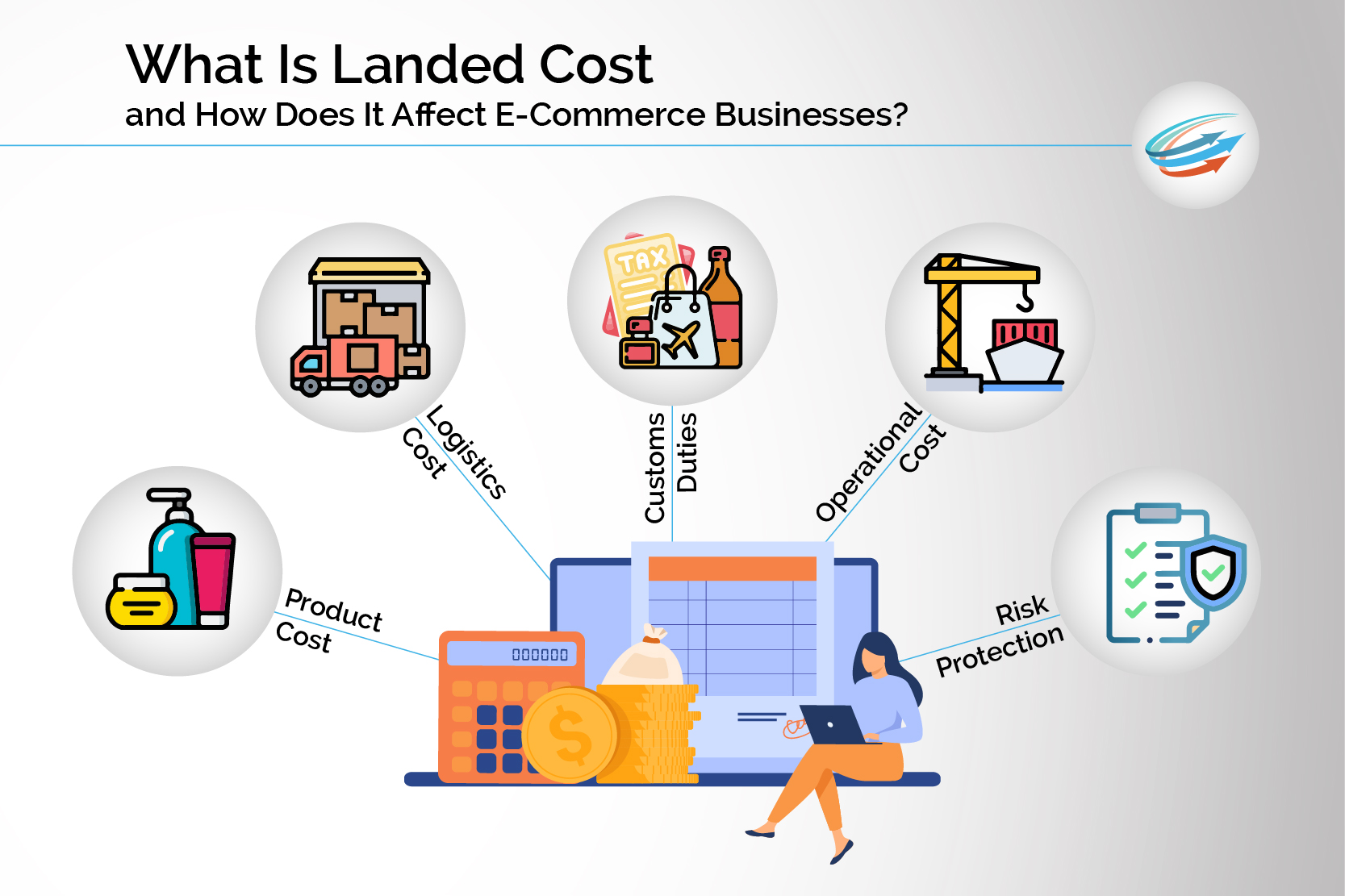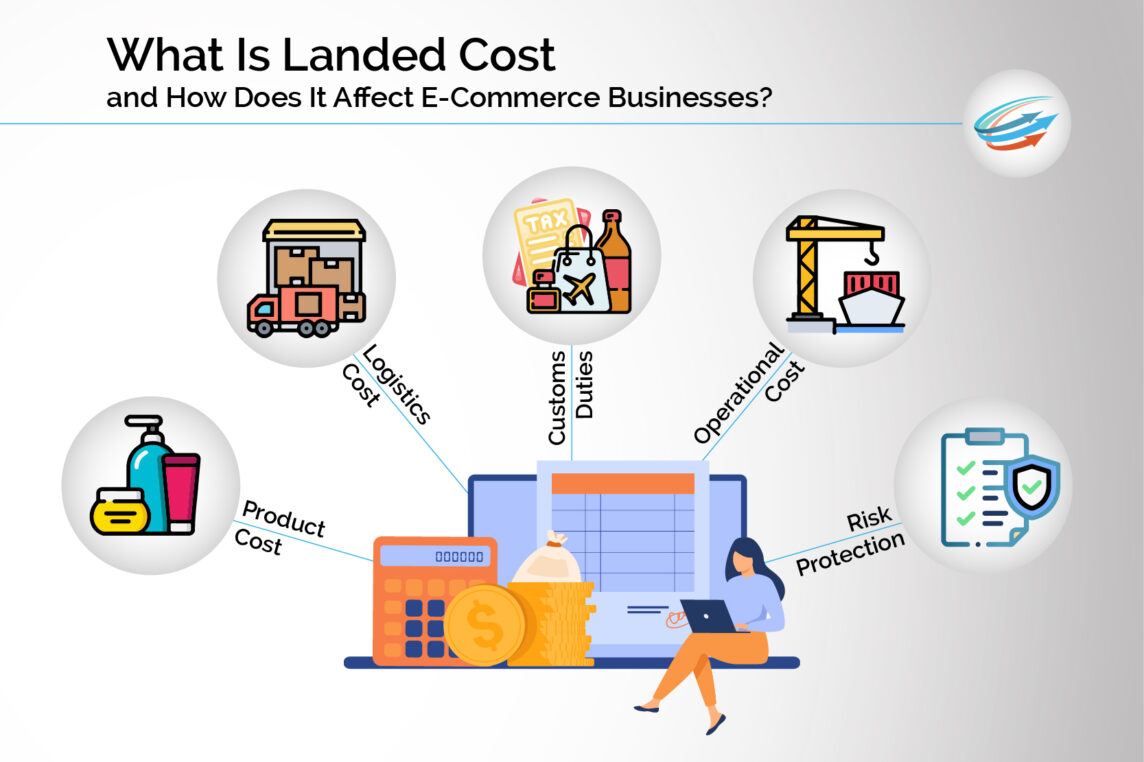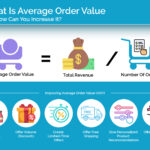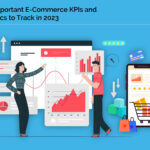
As an e-commerce business, staying ahead of the competition and maximizing profits is always a top priority. But have you ever thought about how much further your business could go if you truly understood the costs associated with serving customers? It starts with understanding landed cost. In this blog post we’ll uncover what landed cost is, how it impacts your business operations, and explore ways to apply this knowledge to make informed decisions about optimizing your products.
What Is Landed Cost?
Landed cost is a concept used in business and accounting to help organizations accurately estimate how much a certain product will cost when it is physically brought from the factory to the buyer’s warehouse. It considers all associated costs, such as transportation fees, customs duties, insurance premiums, currency conversion costs, and more.
By understanding the true landed cost of an item, companies can then factor it into their pricing models for the product in order to gain a profitable margin.
How Do You Calculate Landed Costs?
Calculating landed costs for goods involves more than just knowing the outright price. There are many other hidden costs associated with entering the market and supplying the goods in question.
Landed Cost = Product Cost + Logistics + Customs + Operational + Risk
- Product costs include the cost of goods sold (COGS)
- Logistics costs are all associated shipping and handling costs
- Customs and duties include tariffs imposed by foreign countries on imports
- Operational costs are any applicable user fees or tariffs associated with port operations
- Risk protection or insurance covers any liabilities associated with transportation delays or damage in transit.
While calculating landed costs can be a complex process due to currency conversions, taxes and other methods of payment, understanding these five main components of landed cost is essential for businesses working in international markets.
Ways to Reduce Landed Costs
Reducing landed cost is a critical aspect of achieving success in business. It involves evaluating all aspects of the supply chain to identify opportunities for reduction. Below are some ways to reduce landed costs.
Reduce Manufacturing Costs
One of the most effective ways to reduce landed costs is to reduce the cost of manufacturing. This can be achieved by looking into different processes and techniques that increase efficiency and minimize waste. Adjusting production schedules, decreasing lead times, and bargaining for better supplier prices are just a few examples of how reducing manufacturing costs can significantly lower landed cost.
Look for Duty-free Imports
Duty-free imports can be difficult to find, but they can save you a great deal in terms of import costs, including taxes and tariffs. A good way to get started is to research any applicable trade agreements between your country and the countries from which you’re importing products. You can also look into different duty-free providers who may be able to source items for you that are already duty-free or not subject to heavy fees.
Reduce Fulfillment Costs
Fulfillment costs have long been a source of stress for businesses. One way to lower fulfillment costs is by optimizing delivery scheduling and reducing cycle time between order and delivery. Additionally, organizations can save money through improved inventory management and greater visibility into supply chain performance.
Reduce Shipping Costs
Reducing shipping costs is a great way to reduce landed cost. This can be done through several methods such as finding the most cost effective carrier, negotiating lower rates with existing carrier, consolidating shipments into larger loads, and choosing the appropriate packaging size. Taking the time to find the best alternative can make a big difference in cutting costs, so that more of your budget is available for other investments.
Improve Your Landed Costs with APS Fulfillment, Inc.
At APS Fulfillment, Inc., we offer full-service e-commerce fulfillment out of Miami that includes state-of-the-art warehouse management software (WMS), and we make inventory management and goods tracking easy. We’ll also support your business and automate the warehousing, prepping, shipping, picking, and packing of your orders!
Get in touch with us and one of our consultants will tailor a fulfillment plan designed to grow your business. Book a consultation by calling (954) 582-7450 or email [email protected].






